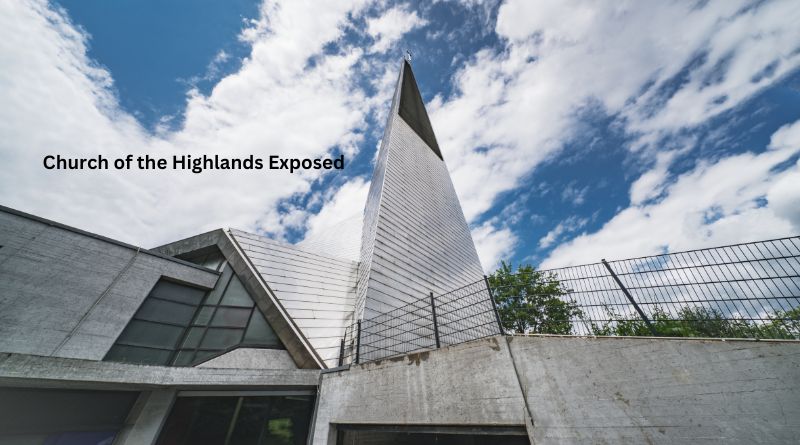Introduction
In recent years, the Church of the Highlands exposed has garnered attention, both positive and negative, for its rapid growth and influence in the religious landscape. As one of the largest megachurches in the United States, boasting a significant following and a widespread network of campuses, the Church of the Highlands holds considerable sway over its members and the communities it serves. However, with its prominence comes scrutiny, and allegations of misconduct and controversy have surfaced, casting a shadow over its reputation. This article aims to delve into the various facets of the Church of the Highlands, exploring its rise to prominence, its organizational structure, its impact on society, and the controversies that have recently come to light.
The Rise of the Church of the Highlands
Founded in 2001 by Pastor Chris Hodges, the Church of the Highlands began as a small congregation meeting in a portable building in Birmingham, Alabama. Through dynamic preaching, innovative outreach programs, and a focus on community engagement, the church quickly attracted a growing number of attendees. Over the years, it expanded its reach, establishing multiple campuses across Alabama and beyond, utilizing a multisite model to accommodate its burgeoning membership. With a blend of contemporary worship, practical teaching, and a welcoming atmosphere, the Church of the Highlands appealed to a diverse demographic, drawing individuals from various backgrounds and walks of life.
Organizational Structure and Leadership
At the helm of the Church of the Highlands is Pastor Chris Hodges, whose charismatic leadership style has been instrumental in its growth and success. Under his guidance, the church has adopted a decentralized structure, with each campus operating semi-autonomously while adhering to the overarching vision and values of the organization. This approach allows for flexibility and adaptability, enabling the church to respond effectively to the needs of its congregants and the communities it serves. Additionally, the Church of the Highlands has developed a robust leadership pipeline, equipping and empowering individuals to serve in various capacities within the church, from small group leaders to pastoral staff.
Impact on Society
The Church of the Highlands has made significant strides in positively impacting the communities it serves through various outreach initiatives and social programs. From feeding the hungry and providing shelter for the homeless to offering counseling services and support for struggling families, the church has demonstrated a commitment to holistic ministry and compassionate care. Furthermore, its emphasis on personal growth and spiritual development has empowered countless individuals to overcome adversity, find purpose and meaning in their lives, and make a difference in the world around them. Despite criticisms leveled against it, the Church of the Highlands has undeniably left a mark on society, inspiring hope and transformation in the lives of many.
Controversies and Allegations
However, amid its impressive growth and seemingly positive impact, the Church of the Highlands has not been immune to controversy. In recent years, allegations of financial impropriety, leadership misconduct, and theological controversy have surfaced, raising questions about the integrity and transparency of the organization. Accusations of extravagant spending, nepotism, and lack of accountability have led to calls for greater oversight and scrutiny of the church’s practices. Furthermore, concerns have been raised regarding its doctrinal beliefs and theological teachings, particularly regarding issues such as LGBTQ+ inclusion and gender equality. These controversies have tarnished the reputation of the Church of the Highlands and sparked debate within both religious and secular circles.
Response and Accountability
In response to the controversies and allegations leveled against it, the Church of the Highlands has sought to address concerns and uphold its commitment to integrity and accountability. In a series of public statements and press releases, Pastor Chris Hodges and church leadership have defended their actions and sought to clarify misconceptions surrounding the organization. Additionally, the church has implemented measures to enhance transparency and accountability, including financial audits, leadership training, and increased oversight of its operations. While some critics remain skeptical of these efforts, others have acknowledged the church’s willingness to engage in dialogue and address legitimate grievances.
Conclusion
The Church of the Highlands occupies a unique position within the religious landscape, with its rapid growth, influential leadership, and widespread impact on society. While it has garnered praise for its dynamic worship services, innovative outreach programs, and positive contributions to the community, it has also faced scrutiny and controversy, with allegations of misconduct and impropriety tarnishing its reputation. As the church continues to navigate these challenges and strive for excellence in its ministry, it must remain vigilant in upholding its core values of integrity, transparency, and accountability. Only by addressing concerns head-on and fostering a culture of openness and humility can the Church of the Highlands fulfill its mission and regain the trust of its members and the broader public.
Read also: check

